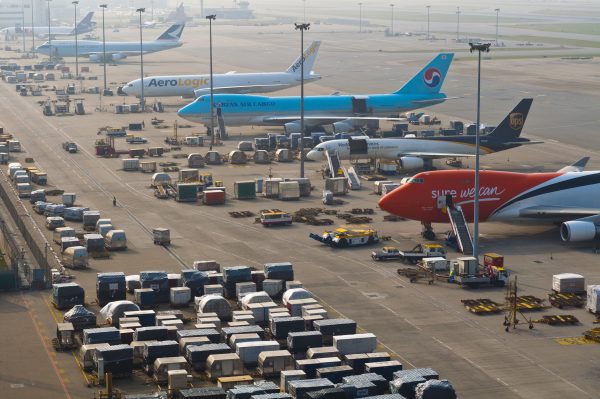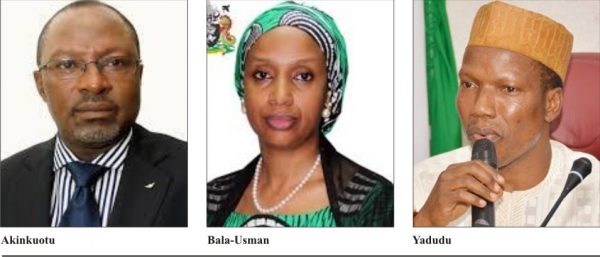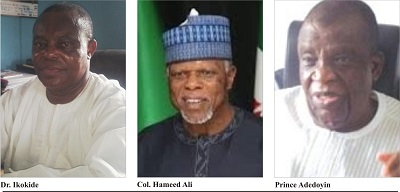Budgeting For Efficiency And Transport
 Transportation systems, depending on their efficiency, play a key role in environmental sustainability and Human Development Index. This is because it bothers on convenience, time, cost and revenue, consumption, health and contributions to the growth of the economy. Of course, these are major parameters to measuring its efficiency.
Transportation systems, depending on their efficiency, play a key role in environmental sustainability and Human Development Index. This is because it bothers on convenience, time, cost and revenue, consumption, health and contributions to the growth of the economy. Of course, these are major parameters to measuring its efficiency.
Inefficient transport systems on the other hand, contribute to global warming due to unabated emissions of carbon monoxide from various means of transportation. Its greenhouse gas (GHG) emissions are driven by the ever-increasing demand for movement of persons and goods, beside its production processes.
In a report by a knowledge-base institution- Centre for Social Justice (CSJ), a “steady increase of income per capita in developing and emerging economies has already led to a recent rapid growth in ownership and use of two-wheel (Okada), three-wheel (Keke Marwa) and light duty vehicles, together with the development of new transport infrastructure including roads, rail, airports and seaports.Nigeria’s transportation infrastructure includes road and highway networks, railways, canals and navigable waterways, seaports, airports, associated facilities and vehicle fleets. Much of the infrastructure is not new and there is a growing concern over their inadequacy for current needs and vulnerable to the impacts of climate change.
The National Adaptation Strategy and Plan of Action on Climate Change for Nigeria (NASPA-CCN) report argued that unmaintained road networks will further be degraded by extreme weather and that airport operations will be disrupted by heavy rainfall, violent thunderstorms, severe winds and harmattan dust storms.
The negative impacts on the transportation system can result to a negative chain effect on the economy. The example is cost implication of diverting Abuja-bound passengers to Kaduna- cost, time, security and traffic issues, in the ongoing plans to rehabilitate Abuja airport.
The Federal Ministry of Transport has been budgeting for projects in the sector and now there is a raging controversy and perhaps, reasons for suspicion that these budgets are without concrete policy measures to mitigate the effects of climate change or build climate resilience in transport infrastructure development.
In a four-year review of the budgetary allocations to the sector, there are observed shortcomings- allocations that have not positively impacted on climate change and the economy at large.
The 2017-2019 Medium Term Expenditure Framework has just been approved, hence work on the 2017 appropriations would soon begin. It is an opportunity to look deep into the ministry’s proposals, which presently has N276.86 billion.
This is more important now that the capital vote proposal amounted to N262.86 billion, representing 94.63 per cent of the sector’s total budget, while N14.86 billion is left for recurrent expenditure.
In a four-year period, the allocation to the sector decreased from N107.7 billion in 2013 to N72.3 billion in 2014 and nosedived to N29.7 billion in 2015 before the leap to N202.3 billion in 2016. The average allocation to recurrent expenditure over the four years was 23.22 percent while 76.79 percent went to capital expenditure.
These allocations do not seem sufficient to tackle the challenges of the sector, especially from the carbon reduction perspective. The sector attracted 5.84 percent, 5.18 percent, 2.54 percent and 11.88 percent of the overall federal capital expenditure for the years 2013, 2014, 2015 and 2016 respectively.
Using the costing in the Nigerian Integrated Infrastructure Master Plan (NIIMP) as a benchmark, a cumulative funding gap of N644 billion emerged in the rail subsector averaging N161 billion a year over the four-year period. In aviation, a cumulative gap of N726.3 billion emerged, being an average of N181.595 billion a year.
The Lead Director of CSJ, Eze Onyekpere, noted that using motorcycles as a means of youth empowerment contributes to carbon emissions and the resources could have been better spent in projects, which will empower the youths and create economic value from a climate friendly perspective.
“The issue of legislators’ constituency projects which came up here needs special attention and delineation. It is imperative that the executive and the legislature define the contours of projects and programmes that could be funded under this heading from a sustainability and low carbon framework perspective. So many projects come under this heading, attracting billions of public funding but add little value to the economy while increasing carbon footprints.
“Evidently, rail transportation in Nigeria has taken a back seat when compared with road transportation. As a result, Nigerian railways are abandoned and or poorly maintained. Railways rehabilitation and repairs are line items in the budget of the ministry and are poorly implemented and if given adequate attention, will ramp up climate adaptation and mitigation,” he said.
For example, the completion and rehabilitation of the Ajaokuta -Warri Rail Line has been in the works since 2011 when the sum of N4.605 billion was voted for it; in 2012 and 2013, it received N3.218 billion and N4.135 billion respectively. Its status now is not clear, but in 2016 it had another vote of N8.5 billion.
Preliminary studies and work on the Lagos-Ibadan Rail Line has been ongoing since 2012 with nothing concrete achieved since then. The recently completed Abuja-Kaduna Rail line has been ongoing since 2012.
In the 2013 budget, the following railway feasibility studies were paid for, vis; baseline studies for the Lagos-Ibadan, Lagos- Abuja, Iganyi-Abuja, Zaria-Kaura- Namoda-Isa-Goronyo-Ilella, Aba-Benin, Lokoja-Abuja. None of these rail lines have seen the light of the day. This challenge may not be unconnected with the number of rail projects that have been in the pipeline or are ongoing and which available treasury funds cannot complete.
This therefore, brings to the fore the need for rationalization and prioritization of projects for inclusion into the budget. This will prevent spreading the available resources too thinly. This further brings sharply in focus the need for funding of railways beyond the public treasury.
Therefore, a framework for a low carbon budget template in the transport sector that is geared towards mitigation, adaptation and building sectoral resilience has become imperative.
Equally imperative is effective use of fiscal budget allocation as pivotal in ensuring that government at various levels key into proactive measures to mitigate the effects of climate change reaps the development benefits for citizens.
For Mr. Fidelis Onyejegbu of Public Finance Management Unit at CSJ, a wide array of policies and strategies have been employed in different circumstances, especially at the state level to restrain private light vehicle use, promote mass transit modes and manage traffic congestion in order to reduce fossil fuel use, air pollution, and GHG emissions.
“The initiation of high capacity buses in Abuja, Lagos, Imo and Rivers States is an example of this. These policies and strategies overlap considerably, often synergistically. The magnitude of urban growth and population redistribution from rural to urban areas in Nigeria is expected to continue,” he said.







